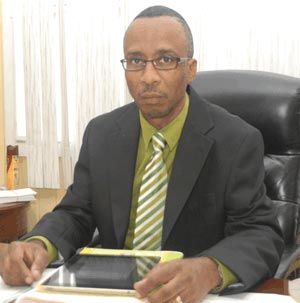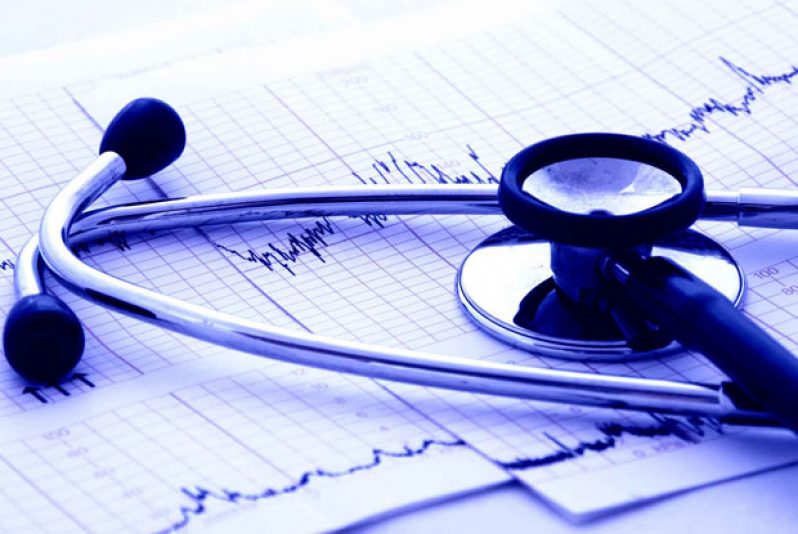FIRSTLY, I would like to publicly express my gratitude to all those who have read my past two columns and have taken the time to contact me with their comments both positive and negative – all have been helpful, and some of the concerns raised warrant a response in a subsequent article.

Now, this week the topic is, patient self-education and is something which would be best introduced with a seemingly hypothetical situation.
Imagine someone with a chronic medical condition, something that has been bothering him or her for a fairly long period. That person eventually goes to a doctor and has the condition diagnosed and a treatment recommended. The condition does not change however, so the person goes to another doctor, is given a different diagnosis and a different treatment regimen. This situation continues to the point where that person has seen four different doctors and has been given four different types of treatment, all for one ailment. The person then goes overseas where another diagnosis is given and he or she has to undergo surgery to correct the problem which finally goes away or is significantly rectified. The situation outlined above is not hypothetical. It is actually a summary of a real actual case.
Generally, in Guyana, the public has developed a dependency syndrome which is based largely on the reality of the lack of knowledge of the population in relation to the responsibilities of service providers. What people fail to recognise is that the social contract is a two-way thing, with the individual having arguably as much responsibility as the service provider in the provision of certain services.
Nowhere is the dependence on authority, or rather the presumed monopoly of knowledge by authority, more apparent than in the health care system, a situation that is not unique to Guyana.
What we have here however – and this is from a layman’s perspective – is an environment which encourages a situation where the onus of diagnosis and care is primarily on the doctor, with the patient accepting little responsibility for their own health beyond going to the hospital. Unfortunately, this is a situation that many patients in Guyana seem comfortable with.
One would think that, for chronic illnesses in particular, the patient is the one who is most knowledgeable about what is going on within his or her body; the patient has a unique intimacy with the history of the headaches, the back pain, the occasional swelling, the nausea, or whatever is disrupting to how a healthy body should operate.
In the online research I’ve undertaken on patient self-education, an interesting quote that I came across is one by Dr. Patrick Golden, who runs the website AsktheDoctor.com.
“It is my belief,” said Dr. Golden, “that knowledge is power, and this has never been more evident than in patients’ self-education about their health matters.”
The main problem with the use of the Internet for self-education on health matters is of course the validity or quality of the information available. For example, an increasing amount of the information available to web surfers comes from the online encyclopedia, Wikipedia.org. But Wikipedia is an openly edited and contributed source of information which is subject to manipulation with false information. Also, other websites sometimes offer incorrect information on health issues, many of them just as a prank. DHMO.org for example, offers information on the “dangerous chemical” Dihydrogen Monoxide. It is only after prolonged exploration of the website that you realise that the chemical under discussion is really water, of which dihydrogen monoxide is the scientific name.
Another restriction of the Internet as a health-education tool is of course availability. We are far from achieving the goal of universal internet access in Guyana, which means that focusing on internet access as the primary tool of patient self-education at present is not a viable option.
The most obvious source of patient self-education in Guyana, interestingly enough, comes from health care providers themselves. The magazines, pamphlets, leaflets, fliers and posters and wall charts which can be found in the waiting areas of most health care facilities in Guyana provide a wealth of information for anyone willing to dedicate time to reading them. In many instances, the leaflets provided are free to take away with you.
The best approach for a more progressive environment of patient self-education has to be a multifaceted one. Persons can learn to keep track of their pains and health related events, perhaps even to the extent of keeping a medical diary if practical. They also need to try to access as much information as possible in relation to their particular ailment, both from the Internet and other sources. The more you know, the more you can work with your doctor to correctly identify and treat your condition. If the patient mentioned earlier in this article had better information on his condition, probably the very first diagnosis would have been the correct one. Patient education serves to help both the patient as well as the health care provider.
There is the oft-quoted biblical saying which goes, “Physician, heal thyself.” The context in which that statement was made implied that the physician possessed the knowledge necessary to cure himself of whatever was afflicting him. In today’s world, with so much knowledge potentially available to persons suffering from some ailment or the other, it is not unreasonable to say, “Patient, heal thyself with the help of the physician.”
(By Keith Burrowes)




.png)









